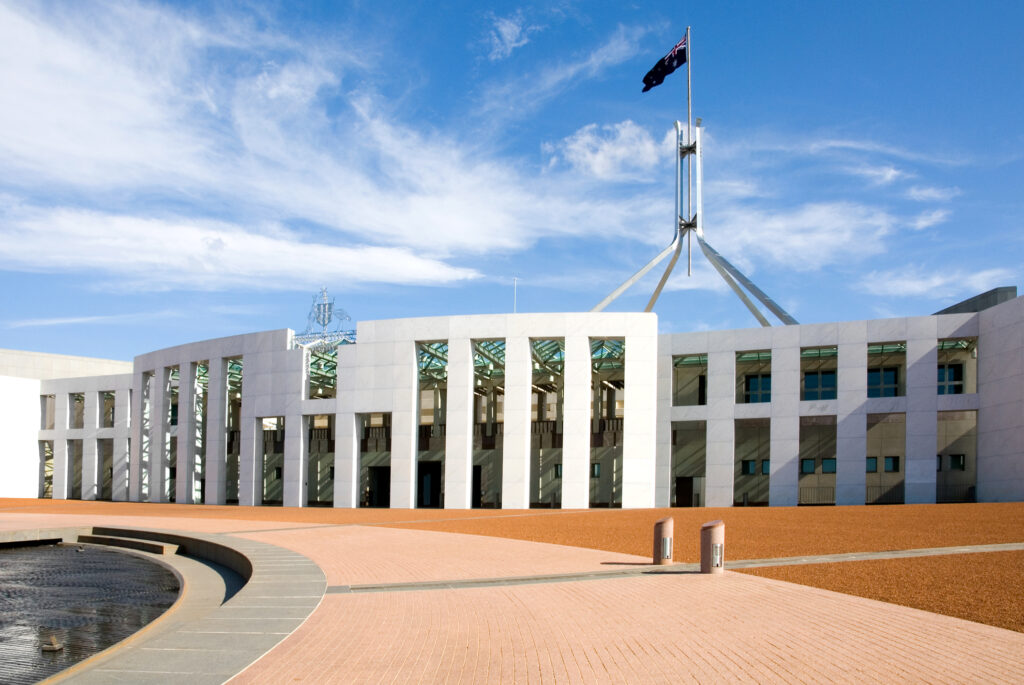Treasurer Jim Chalmers has delivered his fourth Budget on the eve of the election, prioritising the cost of living crisis, healthcare, and education for all Australians.
The Government is committed to improving living standards for ordinary Australians with income tax cuts, increased healthcare and education spending, together with a number of infrastructure projects. Unfortunately, this will be funded by an increased Government budget deficit; with the net impact of the budget expected to lead to increased spending of $103 million in 2025/26, $3.4 billion in 2026/27, $6.1 billion in 2027/28 and $4.5 billion in 2028/29.
2025/26 Federal Budget summary contents
Contents: Scroll to Individuals / Scroll to Business and investment / Scroll to International
Individuals
Personal Income Tax – New tax cuts for every Australian taxpayer
The biggest Budget announcement was the new income tax cuts for individuals with effect from 1 July 2026 and 1 July 2027 respectively. This will result in the $18,201 to $45,000 tax band decreasing from 16% to 14% over two years. The new tax rates and thresholds will be as follows (excluding the 2% Medicare Levy):
This is a tax saving of $268 over the 2026/27 tax year and $536 over the 2027/28 tax year for all taxpayers earning $45,000 per annum or more.
Personal Income Tax – Medicare Levy reduction for low income earners
The thresholds for Medicare Levy have increased with effect from 1 July 2024 to provide cost of living relief to individuals and families on lower incomes. The threshold has been summarised as follows:
* The thresholds will increase by $4,216 for each dependant child or student, up from $4,027
This will provide a boost to those on low incomes and exempt them from making the payment of 2% Medicare Levy.
Continued energy bill relief
The Budget announced that the Government will continue energy bill rebates of $75 per quarter for eligible Australian households and small businesses until 31 December 2025 to provide cost-of-living relief.
Reduction in alcohol taxes
The Budget announced that indexation on draught beer excise and excise equivalent Customs Duty rates will be paused for a two‑year period, from August 2025.
The Budget also announced that the $350,000 caps on the excise remission scheme for alcohol manufacturers and the Wine Equalisation Tax producer rebate will be raised to $400,000 with effect from 1 July 2026.
Business and investment
Managed Investment Trusts
On 13 March 2023, the Government announced that it would amend the law to “make clear that trusts ultimately owned by a single widely held investor (e.g. a foreign pension fund) are able to access the MIT concessions”. Consistently with this policy, the Budget announced that it would “clarify arrangements” and that “This measure … will apply to fund payments from 13 March 2025”. If the amendments were intended to be clarifications, the expectation was that these changes should apply retrospectively, however this is yet to be confirmed.
The 2023-2024 Budget proposed two changes to the clean building managed investment trust withholding tax concession. The first was to extend it to data centres and warehouses. The second was to raise minimum energy efficiency requirements with consultation on the transitional arrangements. These changes were intended to commence with effect from 1 July 2025. However, the start date has been delayed to the later of 1 October 2025 or the first 1 January, 1 April, 1 July or 1 October after the Act receives Royal Assent.
More Money for ATO Auditors
The Budget announced that they would provide $999 million over four years to the Australian Taxation Office to extend and expand tax compliance activities (i.e.: reviews and audits). This only makes ensuring that you have the support of good tax advisers even more important.
Greening Australian Metals Industry
The Budget announced that the Government would provide production based grants to support Australian aluminum smelters switching to renewable energy and capital grants to green iron projects to support producers to establish or transition into low emissions facilities.
International
Restricting foreign ownership of housing
In order to assist with the affordability of housing for Australians, a two-year ban period has been imposed from 1 April 2025 to 31 March 2027 on foreign persons (including temporary residents and foreign owned companies) on purchasing established dwellings. This means that Foreign Investment Review Board (‘FIRB’) route which was available to temporary residents previously will not be available until 31 March 2027.
However, the ban on foreign persons purchasing housing will not apply if:
- The investment is made to significantly increase housing supply / support the availability of housing on a commercial scale; or
- The purchase by foreign‑owned companies to provide housing for workers in certain circumstances.
The focus of ATO and Treasury is to prevent land banking for foreign investors and put vacant land to residential and commercial use.
Sale by Foreign Residents of Australian Land Related Assets
Non-Australian residents are already subject to capital gains tax on Australian real property and non-portfolio interests in Australian land-rich companies. In last year’s Budget, the Government announced that they would strengthen the foreign resident capital gains tax (CGT) regime to ensure that Australia taxes foreign residents on direct and indirect sales of assets with a ‘close economic connection’ to Australian land. This measure was intended to apply to CGT events on or after 1 July 2025 but the start date has been delayed to the latter of 1 October 2025 or the first 1 January, 1 April, 1 July or 1 October after the Act receives Royal Assent.
Final word
This was very much a ‘pre-election budget’ with the focus being heavily on income tax cuts and generous expenditure on health and education – together with strategic changes to assist with the housing crisis. There was virtually no change in the current tax system for business owners, which is welcomed in the backdrop to the uncertain global geopolitical circumstances we’re facing.
If you have any questions about any of the Budget announcements and what they mean for you or your business, talk to your trusted Nexia Advisor.










